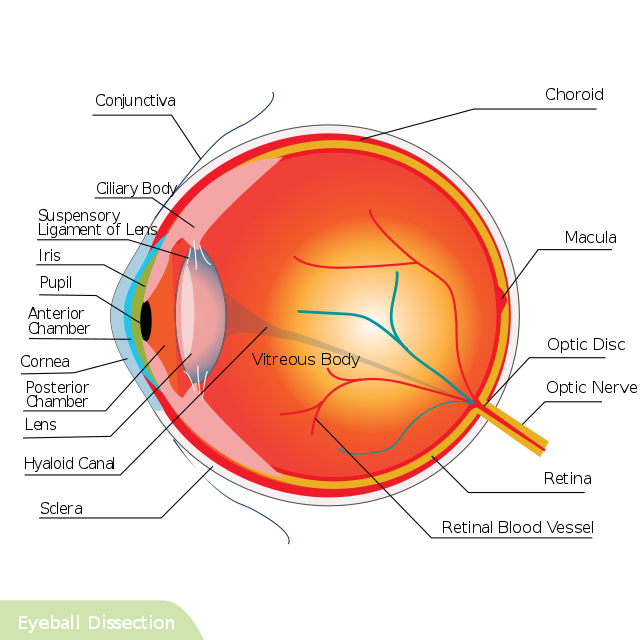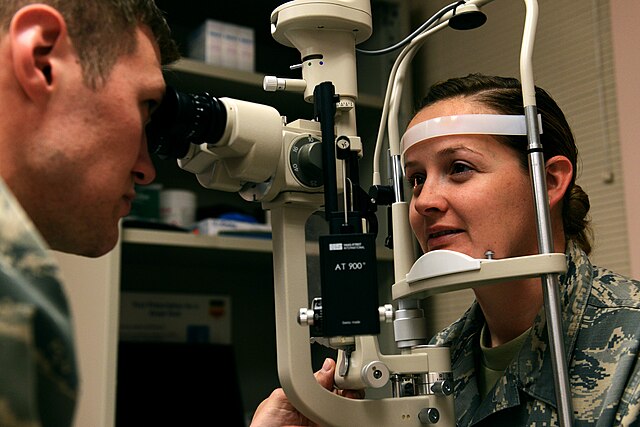Eye Care Tips:
Here are some eye care tips that are often suggested by doctors to maintain healthy eyes:
- Regular Eye Exams: Schedule regular eye exams with an optometrist or ophthalmologist to monitor your eye health and detect potential issues early.
- Protective Eyewear: Wear sunglasses that block UV rays to protect your eyes from harmful sun exposure. If you work in environments with hazards, use safety glasses or goggles.
- Follow the 20-20-20 Rule: To reduce eye strain from prolonged screen use, take a 20-second break to look at something 20 feet away every 20 minutes.
- Stay Hydrated: Drink plenty of water to maintain good overall health, including the health of your eyes.
- Balanced Diet: Consume a diet rich in vitamins and minerals, particularly those beneficial for eye health, such as vitamin A, C, and E, as well as omega-3 fatty acids.
- Quit Smoking: Smoking is linked to an increased risk of age-related macular degeneration and cataracts. Quitting can benefit your overall eye health.
- Manage Chronic Conditions: Control conditions like diabetes and hypertension, as they can affect your eyesight if not properly managed.
- Proper Lighting: Ensure adequate lighting when reading or working, and avoid glare from screens or overhead lights.
- Eye Protection in Sports: If you play sports, use appropriate protective eyewear to prevent injuries.
- Limit Screen Time: Reduce prolonged exposure to digital screens. Follow the 20-20-20 rule and consider using blue light filters on screens.
- Proper Contact Lens Care: If you wear contact lenses, follow your eye care professional’s instructions for cleaning and wearing them. Avoid sleeping in your lenses unless prescribed.
- Hygiene Practices: Wash your hands regularly to prevent eye infections, and avoid touching or rubbing your eyes.
- Manage Allergies: If you have allergies, manage them effectively to prevent eye irritation and redness.
- Stay Active: Regular exercise is beneficial for overall health, including maintaining healthy eyes.
- Quality Sleep: Ensure you get enough quality sleep, as it is crucial for eye health and overall well-being.
Remember to consult with an eye care professional for personalized advice based on your individual eye health needs. These tips are general recommendations and may not apply to everyone equally.
Why You should Take Care of your Eyes:
Taking care of your eyes is essential for maintaining overall health and well-being. Here are some key benefits of practicing good eye care:
- Preservation of Vision: Regular eye care helps detect and address potential issues early, preserving your vision and preventing vision loss.
- Early Detection of Health Issues: Eye exams can reveal early signs of systemic conditions such as diabetes, hypertension, and high cholesterol, enabling timely intervention.
- Reduced Eye Strain: Following eye care practices, such as the 20-20-20 rule and proper lighting, helps reduce eye strain, particularly during extended screen time.
- Prevention of Eye Infections: Good hygiene practices and proper contact lens care can lower the risk of eye infections and related complications.
- Improved Quality of Life: Clear vision contributes to a better quality of life, enhancing daily activities such as reading, driving, and participating in hobbies.
- Enhanced Work Performance: Reduced eye strain and optimal vision contribute to improved focus and productivity in professional and academic settings.
- Increased Safety: Protecting your eyes with safety glasses during certain activities and maintaining good vision contribute to overall safety in various environments.
- Prevention of Age-Related Conditions: Proper eye care can help prevent or slow down the progression of age-related conditions such as macular degeneration and cataracts.
- Comfort and Well-Being: Following eye care practices promotes comfort, reduces discomfort from dry eyes or irritation, and contributes to overall well-being.
- Improved Sleep: Minimizing screen time before bedtime and ensuring good sleep hygiene can positively impact sleep quality, supporting overall eye health.
- Enhanced Sports Performance: Wearing protective eyewear during sports activities can prevent injuries and contribute to better performance.
- Positive Mental Health: Clear vision and eye comfort contribute to positive mental health, reducing stress and enhancing overall mood.
- Prevention of Allergies: Managing allergies effectively helps prevent eye-related symptoms such as redness, itching, and watering.
- Reduced Healthcare Costs: Early detection and prevention of eye conditions may lead to lower healthcare costs over time.
- Long-Term Independence: Preserving vision through proper eye care contributes to maintaining independence and a high quality of life as you age.
By incorporating good eye care habits into your daily routine and seeking professional care when needed, you can enjoy these benefits and contribute to the long-term health of your eyes.
List of Eye Related Diseases:
Various eye diseases can affect different parts of the eye, leading to vision problems or other complications.
Here’s a list of common eye diseases, along with brief explanations:
- Cataracts: A condition where the eye’s lens becomes cloudy, causing blurry vision. Surgery is often required to replace the cloudy lens.
- Glaucoma: Increased pressure in the eye that damages the optic nerve. Treatment may involve eye drops, laser therapy, or surgery to manage pressure.
- Macular Degeneration: Breakdown of the central part of the retina (macula), leading to vision loss. Treatment may include medications or injections to slow down progression.
- Diabetic Retinopathy: Damage to blood vessels in the retina due to diabetes. Managing diabetes is crucial, and treatments may involve laser surgery or injections.
- Retinal Detachment: Separation of the retina from the back of the eye, often requiring surgical intervention for reattachment.
- Conjunctivitis (Pink Eye): Inflammation of the conjunctiva, causing redness and irritation. Treatment depends on the cause and may involve antibiotics or antihistamines.
- Strabismus: Misalignment of the eyes, sometimes known as “crossed eyes.” Treatment may involve eyeglasses, patches, or surgery.
- Amblyopia (Lazy Eye): Reduced vision in one eye, often corrected in childhood with patches, glasses, or other therapies.
- Dry Eye Syndrome: Insufficient tear production, managed with artificial tears, lifestyle changes, or prescription medications.
- Keratitis: Inflammation of the cornea, treated with eye drops or ointments depending on the cause.
- Retinitis Pigmentosa: Genetic disorder causing the breakdown of cells in the retina. While there’s no cure, treatments, and visual aids may help manage symptoms.
- Uveitis: Inflammation of the uvea, the middle layer of the eye. Treatment involves addressing the underlying cause and may include medications.
- Blepharitis: Inflammation of the eyelids, managed with warm compresses, eyelid hygiene, and medications.
- Astigmatism: Blurred vision due to irregularly shaped cornea or lens. Corrected with eyeglasses, contact lenses, or refractive surgery.
- Color Blindness: Inability to perceive certain colors. No cure, but aids and tools are available to help individuals manage the condition.
How to Prevent And Cure Such Disease:
While some eye conditions can be managed or treated, it’s essential to note that the term “cure” may not apply to all eye diseases. Treatment options vary depending on the specific condition, and not all conditions have a complete cure. Here is a brief overview of management and treatment approaches for some common eye diseases:
- Cataracts: Surgical removal of the cloudy lens and replacement with an artificial lens is a common treatment for cataracts.
- Glaucoma: Medications (eye drops), laser therapy, or surgery may be used to reduce intraocular pressure and manage glaucoma.
- Macular Degeneration: Treatment options may include medications, laser therapy, or injections into the eye to slow the progression of the disease.
- Diabetic Retinopathy: Managing diabetes through medication, lifestyle changes, and laser surgery may be recommended to control diabetic retinopathy.
- Retinal Detachment: Surgery is often necessary to reattach the retina to the back of the eye.
- Conjunctivitis (Pink Eye): Treatment depends on the cause (bacterial, viral, or allergic) and may involve antibiotics, antiviral medications, or antihistamines.
- Strabismus: Corrective measures may include eyeglasses, vision therapy, or surgery to align the eyes properly.
- Amblyopia (Lazy Eye): Treatment may involve patching the stronger eye to encourage the weaker eye to develop better vision, along with corrective lenses and vision therapy.
- Dry Eye Syndrome: Artificial tears, prescription medications, and lifestyle changes may be recommended to manage dry eyes.
- Keratitis: Treatment depends on the cause and may include antibiotic or antifungal eye drops, depending on the type of infection.
- Retinitis Pigmentosa: While there is no cure, certain treatments and visual aids may help manage symptoms and improve quality of life.
- Uveitis: Treatment involves addressing the underlying cause, and may include corticosteroids, immunosuppressive drugs, or other medications.
- Blepharitis: Warm compresses, eyelid hygiene, and medications may be used to manage symptoms.
- Astigmatism: Eyeglasses, contact lenses, or refractive surgery can help correct vision problems associated with astigmatism.
- Color Blindness: There is no cure for color blindness, but various aids and tools can help individuals manage the condition.
It’s crucial to consult with an eye care professional for an accurate diagnosis and appropriate treatment plan tailored to the specific eye condition. Regular eye check-ups are also important for early detection and management of eye diseases.
To Check out More Visit – The Eye Doctor Unlimited
You May Also Like to Read :
Read : K.K. Pathak ने इस्तीफा दिया था या साजिश जाने सब कुछ 2024
Read : Atal Tunnel Longest Sea Bridge Inauguration 2024 Mumbai
Read : Indian IT Sector Hiring Reduced by 21%
Read : PM Modi’s Lakshadweep Trip Sparks Row
Read : Indian Tourist Went “Vocal for Local”
Read : Golden Globe Awards 2024
Read : ED Targets 12 Locations Associated with Hemant Soren
Read : Google to Restrict Cookies
Read : Rahul Gandhi Reach Jharkhand
Read : ISRO Latest Updates On Missions
Read : Vivek Bindra Vs Sandeep Maheswari Latest Controversy
Read : Rakul Preet And Jackky Bhagnani Latest News
Read : LATEST BIG BOSS 17 weekend ka war
Read: Big Boss 17 Double Eviction
Read: Royal Enfield Upcoming Bikes
Read: Happy New Year 2024 Unique Quotes
Read : Sukanya Samriddhi Yojana
Read : Brand New Redmi 13 Pro Plus Launch
Read : Ram Mandir Opening Date 2024
Read : Shahrukh Khan In Dhoom4?




